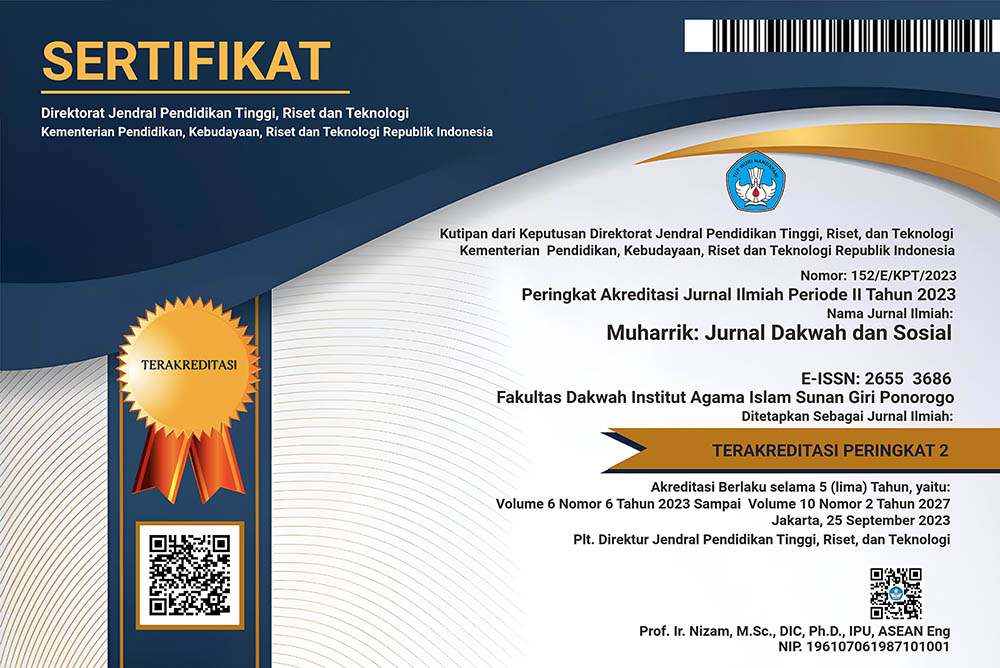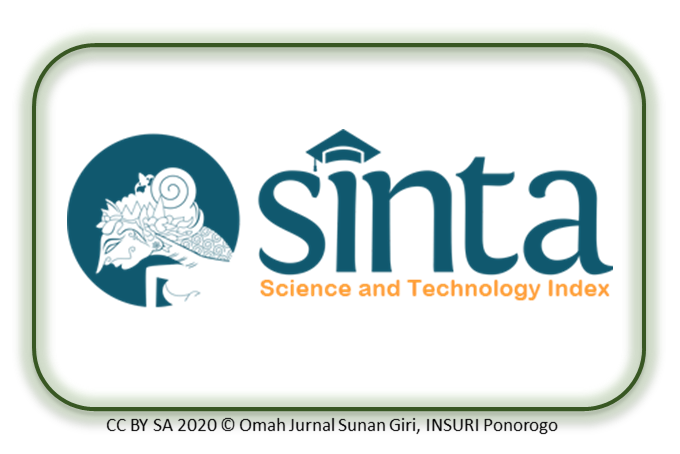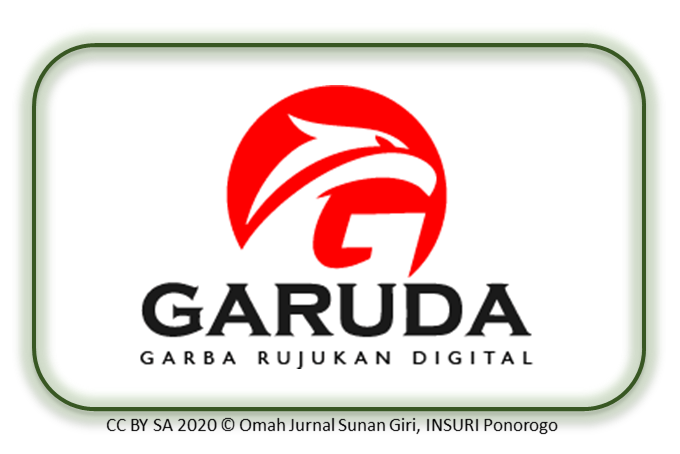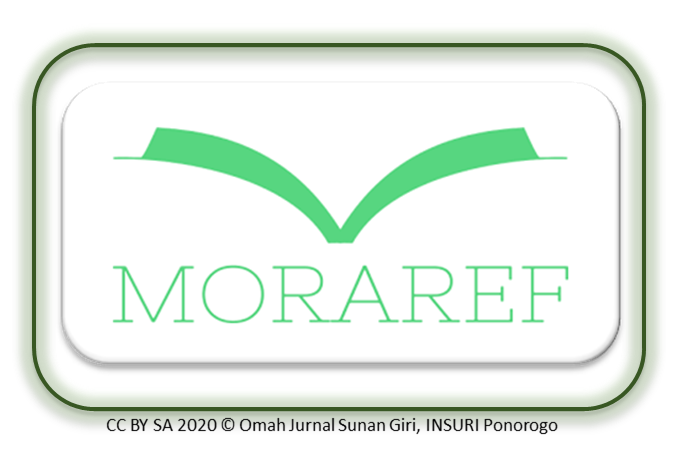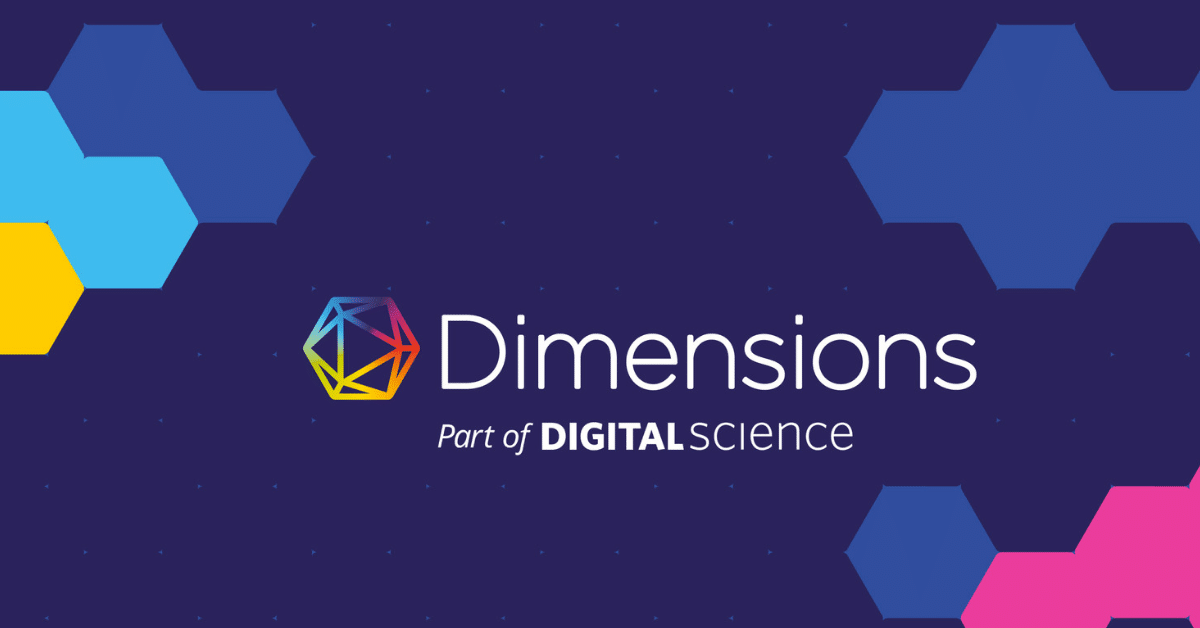Mapping the Intellectual Landscape of Islamic Modernity: A Bibliometric and Critical Discourse Analysis of Global Scholarship
Keywords:
Bibliometric Analysis; Islamic Modernity; Knowledge; Politics.Abstract
This research aims to explore the state of the art of Islamic modernity research using a VOSviewer bibliometric study. The research draws on the 5-year (2020-2025) SCOPUS database, utilizing the keyword "Islamic Modernity." The results were analyzed descriptively and put into a visualization. In each criterion, when possible, regional interpretations are presented to support further analysis. Afterwards, a cross-sectional critical discourse analysis is conducted heuristically. The findings indicate that the number of publications on "Islamic modernity" increases significantly from 2023 to 2024, and this trend continues into 2025. It also suggests that Islamic modernity discourse falls into two poles of intellectual motives: one, more epistemological in the form of theory construction, and the other, more political, as it pays more attention to political issues by scrutinizing the internal dynamics of Islamic society through a political interpretation. Thus, future research could contribute to critiquing the Eurocentric paradigm and foster epistemic justice in the global theory of knowledge.
References
Abdurrahman, T. (2016). Roh al-Haddatsah (4th ed.). Al-Markaz Al-Tsaqafy Al-Araby.
Abdurrahman, T. (2020). Sual al-Akhlaq. Al-Markaz Al-Tsaqafy Al-Araby.
Abed al-Jabri, M. (2011). The Problematic of Authenticity and Contemporaneity in Modern and Contemporary Arab Thought. Contemporary Arab Affairs, 4(2), 174–189. https://doi.org/10.1080/17550912.2011.569179/ASSET//CMS/ASSET/24D7BAB2-F05C-4DD5-B275-498FCE297C79/17550912.2011.569179.FP.PNG
Barton, G., Yilmaz, I., & Morieson, N. (2021). Authoritarianism, Democracy, Islamic Movements and Contestations of Islamic Religious Ideas in Indonesia. Religions 2021, Vol. 12, Page 641, 12(8), 641. https://doi.org/10.3390/REL12080641
Benlahcene, B. (2023). Turkey’s Transition into Modernity and the Response of the ‘Ulamā’: Islamic Studies, 62(3), 351–378. https://doi.org/10.52541/ISIRI.V62I3.2719
Benlahcene, B. (2024). The Critical Engagement with Modern Knowledge in the Writings of Malek Bennabi. Journal of Al-Tamaddun, 19(2), 225–237. https://doi.org/10.22452/JAT.VOL19NO2.15
Chande, A. (2023). Global Politics of Knowledge Production: The Challenges of Islamization of Knowledge in The Light of Tradition Vs Secular Modernity Debate. Nazhruna: Jurnal Pendidikan Islam, 6(2), 271–289. https://doi.org/10.31538/NZH.V6I2.3502
Connell, R. (2020). Southern Theory : The Global Dynamics of Knowledge in Social Science (Vol. 25, Issue March 2010). Routledge. https://www.routledge.com/Southern-Theory-The-global-dynamics-of-knowledge-in-social-science/Connell/p/book/9781741753578
Duile, T. (2020). Kuntilanak: Ghost Narratives and Malay Modernity in Pontianak, Indonesia. Bijdragen Tot de Taal-, Land- En Volkenkunde / Journal of the Humanities and Social Sciences of Southeast Asia, 176(2–3), 279–303. https://doi.org/10.1163/22134379-17601001
Eisenstadt, S. N. (2000). Multiple Modernities. Daedalus, 129(129), 283. https://www.jstor.org/stable/20027613
Farooqi, J. (2013). Max Weber and Islam. Edited by Toby E. Huff and Wolfgang Schluchter. Intellectual Discourse, 8(1). https://doi.org/10.31436/id.v8i1.485
Hallaq, W. (2019). Reforming Modernity. In Reforming Modernity. Columbia University Press. https://doi.org/10.7312/HALL19388
Jameson, F. (2002). A Singular Modernity: Essay on The Ontology of The Present (1st ed.). Verso.
Jung, D. (2021). Islamism, Islamic Modernism and the Search for Modern Authenticity in an Imaginary Past. Religions 2021, Vol. 12, Page 1005, 12(11), 1005. https://doi.org/10.3390/REL12111005
Jung, D. (2023). Islam in Global Modernity: Sociological Theory and the Diversity of Islamic Modernities. In Islam in Global Modernity: Sociological Theory and the Diversity of Islamic Modernities. Springer Fachmedien Wiesbaden. https://doi.org/10.1007/978-3-658-39954-2/COVER
Jung, D. (2024). A Theory of “Islamic Modernities:” Religion and Modernisation in Muslim History. Intellectual Discourse, 32(1), 31–54. https://doi.org/10.31436/id.v32i1.2118
Jung, D., & Sinclair, K. (2020). Religious Governmentality. Temenos - Nordic Journal for the Study of Religion, 56(1), 95–118. https://doi.org/10.33356/TEMENOS.78154
Latypov, A. (2023). Islamic Tibb and Soviet Medicine: Trajectories, Resiliency and Appeal of Indigenous Medical Practitioners in Central Asia, 1921–1991. Central Asian Affairs, 11(2), 129–183. https://doi.org/10.30965/22142290-BJA10051
Mesbahi, M. (2023). Dynamic Quietism and the Consolidation of the ḥawza ʿilmīyya of Qum during the Pahlavi Era. British Journal of Middle Eastern Studies, 50(3), 627–647. https://doi.org/10.1080/13530194.2021.1990746
Meyer, V. (2024a). Epilogue: Asia as a Privileged Space of Inquiry in the Field of Islamic Studies. International Journal of Islam in Asia, 4(1–2), 206–213. https://doi.org/10.1163/25899996-20241066
Meyer, V. (2024b). Epilogue: Asia as a Privileged Space of Inquiry in the Field of Islamic Studies. International Journal of Islam in Asia, 4(1–2), 206–213. https://doi.org/10.1163/25899996-20241066
Meyer, V. (2024c). Grave Matters: Ambiguity, Modernism, and the Quest for Moderate Islam in Indonesia. Journal of the American Academy of Religion, 92(1), 160–179. https://doi.org/10.1093/JAAREL/LFAE061
Obiedat, A. Z. (2022). Modernity and the Ideals of Arab-Islamic and Western-Scientific Philosophy: The Worldviews of Mario Bunge and Taha Abd al-Rahman. In Modernity and the Ideals of Arab-Islamic and Western-Scientific Philosophy: The Worldviews of Mario Bunge and Taha Abd al-Rahman. Springer International Publishing. https://doi.org/10.1007/978-3-030-94265-6/COVER
Rafudeen, A. (2021). COVID-19 as archetype rather than event: Thinking COVID-19 in the light of Eliade’s ‘terror of history.’ HTS Teologiese Studies / Theological Studies, 77(2), 7. https://doi.org/10.4102/HTS.V77I2.6702
Rafudeen, A. (2024). On Sensibilities and Shamsy’s “Rediscovering”: Beyond the Transformation of an Intellectual Tradition. Religion and Theology, 31(3–4), 182–201. https://doi.org/10.1163/15743012-BJA10076
Scharbrodt, O. (2023). Contesting ritual practices in Twelver Shiism: modernism, sectarianism and the politics of self-flagellation (taṭbīr). British Journal of Middle Eastern Studies, 50(5), 1067–1090. https://doi.org/10.1080/13530194.2022.2057279
Süleymanoğlu-Kürüm, R., & Gençkal-Eroler, E. (2023). Alternative modernities and epistemic struggles for recognition in Turkish media: deconstructing Eurocentrism? Third World Quarterly, 44(9), 2154–2172. https://doi.org/10.1080/01436597.2023.2223125
Zarkasyi, H. F. (2020). Imam Zarkasyi’s Modernization of Pesantren in Indonesia (A Case Study of Darussalam Gontor). QIJIS (Qudus International Journal of Islamic Studies), 8(1), 161–200. https://journal.iainkudus.ac.id/index.php/QIJIS/article/view/5760
Downloads
Published
Issue
Section
License
Copyright (c) 2025 Kurniawan Dwi Saputra, Agus Himmawan Utomo

This work is licensed under a Creative Commons Attribution-NonCommercial 4.0 International License.
The author(s) retain/s the copyright and grant/s Muharrik: Jurnal Dakwah dan Sosial the first publication rights licensed under the Creative Commons Attribution-NonCommercial 4.0 International (CC BY-NC 4.0) , which allows others to access (search, read, download and quote), share (copy and redistribute the material in any media or format) and adapt (mix, modify and develop) works for legitimate non-commercial purposes, with recognition of the authorship of the work and its initial publication in this journal.

